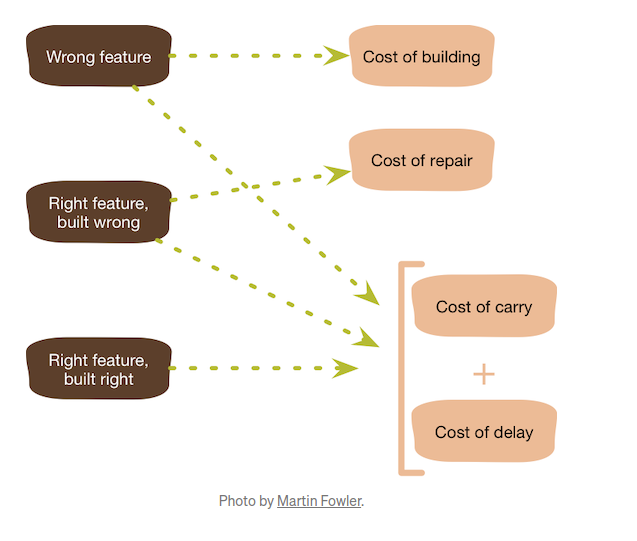Yagni: Difference between revisions
Jump to navigation
Jump to search
| Line 8: | Line 8: | ||
*Cost of building — All the effort spent on analyzing, programming, and testing a feature. | *Cost of building — All the effort spent on analyzing, programming, and testing a feature. | ||
*Cost of delay — The lost opportunity to build and release another feature now. | *Cost of delay — The lost opportunity to build and release another feature now. | ||
*Cost of carry — The complexity added by the feature to the code, making the software harder to modify and debug. | |||
*Cost of repair — The effort spent on modifying a feature because it is not exactly what you need now. | *Cost of repair — The effort spent on modifying a feature because it is not exactly what you need now. | ||
For details understanding go to the man himself https://martinfowler.com/bliki/Yagni.html | |||
Latest revision as of 07:18, 25 September 2021
YAGNI (You Ain’t Gonna Need It)
Maybe not as involved at SOLID. Here is a small overview.
YAGNI, You Ain’t Gonna Need It, or You Aren’t Going to Need It is a principle from Extreme Programming (and somehow related with Lean Thinking) that states that a programmer should not add functionality until it is completely necessary:

- Cost of building — All the effort spent on analyzing, programming, and testing a feature.
- Cost of delay — The lost opportunity to build and release another feature now.
- Cost of carry — The complexity added by the feature to the code, making the software harder to modify and debug.
- Cost of repair — The effort spent on modifying a feature because it is not exactly what you need now.
For details understanding go to the man himself https://martinfowler.com/bliki/Yagni.html